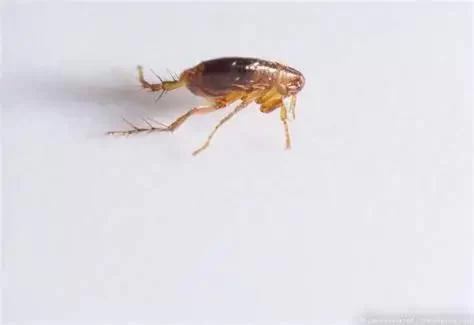Do Fleas Like Perfume? The Surprising Relationship Between Fragrance and Flea Behavior
- understanding-flea-behavior-and-scent-sensitivity
- can-perfume-attract-or-repel-fleas
- what-science-says-about-fragrance-and-insects
- real-experiences-do-perfumes-make-you-a-target
- how-to-wear-perfume-without-attracting-pests
1. Understanding Flea Behavior and Scent Sensitivity
To answer the question “do fleas like perfume?” we must first understand how fleas operate. These tiny pests are highly responsive to heat, movement, carbon dioxide—and yes, certain smells. Their sense of smell helps them locate hosts like pets and sometimes humans. However, what they’re actually drawn to (or repelled by) in terms of fragrance is a bit more complicated than just "they like perfume."
2. Can Perfume Attract or Repel Fleas?
2.1 Fragrances That Might Attract
Sweet and fruity perfumes—think vanilla, coconut, or floral blends—could potentially mask your natural scent and confuse fleas. In rare cases, these scents may simulate the warm, inviting smell of a host animal. Some anecdotal evidence even suggests that heavily perfumed lotions may attract more bugs—not just fleas, but also mosquitoes.
2.2 Fragrances That May Repel
On the flip side, essential oils like eucalyptus, peppermint, cedarwood, and citrus are widely believed to repel fleas. That’s why many natural flea sprays for pets and homes contain those ingredients. However, not all perfumes contain these elements in concentrations strong enough to work as a repellent.
3. What Science Says About Fragrance and Insects
Research on perfume and fleas is limited, but studies on insects in general provide some clues. According to a 2015 study in the Journal of Medical Entomology, certain floral and musky scents can increase bug attraction, while others—particularly those with citronella or lavender—tend to deter them.
Another interesting point: fleas are more host-focused than scent-focused. If your perfume is worn on skin that’s warm, moving, and breathing out carbon dioxide, fleas are more likely responding to those cues rather than the scent itself. Still, if you’ve got a flea issue, switching up your fragrance might not be a bad idea.
4. Real Experiences: Do Perfumes Make You a Target?
Let’s look at some real-world stories. A Reddit user shared how after applying a musky perfume on her wrists and ankles before hiking, she noticed bites later in those exact areas. Another pet owner in Atlanta reported that her dog’s flea problem got worse when she switched to a fruity-scented grooming spray.
While these anecdotes don’t replace scientific trials, they highlight a valid concern: if fleas are already in your environment, the wrong fragrance could make you more noticeable. It’s not about the perfume alone—it’s how it interacts with the rest of your body’s signals.
5. How to Wear Perfume Without Attracting Pests
5.1 Choose Notes That Fleas Dislike
If you're set on wearing fragrance but want to avoid being a bug buffet, look for scents with notes of lemongrass, rosemary, tea tree, or cedar. Many niche perfumers now offer stylish fragrances that naturally repel pests—without smelling like bug spray.
5.2 Apply Strategically
Apply perfume in areas less exposed to air and heat: behind your ears, on your clothes, or the inside of your collar. Avoid ankles and wrists if you’re worried about flea bites—those areas are prime targets due to thin skin and blood flow.
5.3 Pair With Preventive Measures
Fleas are persistent, so don't rely on perfume alone. Keep pets on regular flea treatments, vacuum regularly, and use repellents where needed. Still want to smell divine while staying pest-free? Explore fragrance blends at Scent Snob—where elegance meets practical living.


0 comments